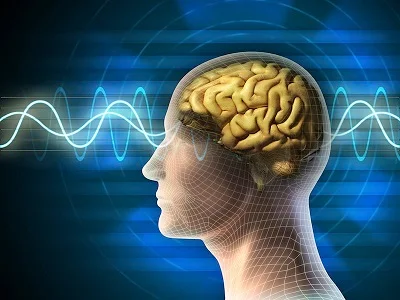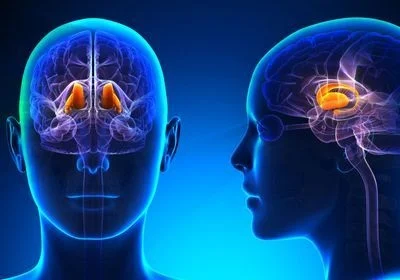What Is a Coma?
A coma is a state of profound unconsciousness in which a person is unable to respond to stimuli, including light, sound, touch, and pain. It is a medical emergency that can result from various causes, such as head trauma, stroke, infection, drug overdose, or a metabolic disturbance.
During a coma, the person's brain activity is significantly reduced, and their vital signs, such as breathing and heart rate, are typically monitored and supported by medical professionals. The duration of a coma can vary, from hours to weeks or even months, depending on the underlying cause and the severity of the brain injury.
The chances of recovery from a coma depend on the cause of the coma and the extent of brain damage. Some people may recover fully, while others may have permanent brain damage or disabilities. In some cases, a person may enter a vegetative state, where they are awake but unaware of their surroundings and have no conscious thoughts or feelings.
What Causes a Coma?
A coma can be caused by a variety of factors that lead to damage or dysfunction in the brain's function. Some of the common causes of coma include Traumatic brain injury: A severe blow or jolt to the head can cause swelling or bleeding in the brain, which can result in a coma.
Stroke: A blockage or rupture of blood vessels in the brain can cause a coma. Infections: Certain infections, such as meningitis or encephalitis, can cause inflammation and damage to the brain tissue, leading to a coma.
Metabolic disorders: Certain metabolic imbalances, such as hypoglycemia (low blood sugar) or liver failure, can disrupt brain function and cause a coma. Drug overdose: Overdosing on drugs or alcohol can depress brain function and cause a coma.
Oxygen deprivation: A lack of oxygen to the brain due to drowning, suffocation, or choking can cause brain damage and a coma.Brain tumors:
Tumors in the brain can compress and damage brain tissue, leading to a coma. It is essential to identify the underlying cause of a coma to determine the appropriate treatment and increase the chances of recovery.
Anoxic brain injury
Anoxic brain injury refers to a type of brain injury that occurs when the brain is deprived of oxygen for an extended period. The brain needs a constant supply of oxygen to function correctly, and when the oxygen supply is reduced or cut off completely, brain cells start to die within minutes.
Anoxic brain injury can be caused by a variety of factors, including:
Cardiac arrest: When the heart stops beating, blood flow to the brain stops, and the brain is deprived of oxygen.Drowning: When a person is underwater for an extended period, they can experience anoxic brain injury due to a lack of oxygen.
Choking: When an object blocks the airway, the brain may be deprived of oxygen. Carbon monoxide poisoning: Carbon monoxide is a toxic gas that can replace oxygen in the bloodstream, leading to anoxic brain injury.
The symptoms of anoxic brain injury can vary depending on the severity of the injury and the areas of the brain affected. Common symptoms include confusion, memory loss, difficulty speaking or understanding language, difficulty with coordination, seizures, and coma.
Treatment for anoxic brain injury depends on the severity of the injury and the underlying cause. In some cases, oxygen therapy, medications, and rehabilitation may help improve brain function and quality of life. However, severe cases may result in permanent brain damage and disabilities.
What Are the Different Types of Coma?
Comas can be classified into different types based on their cause and the level of brainstem function. Here are some of the different types of coma: Traumatic coma: This type of coma is caused by a severe head injury, such as a concussion, brain contusion, or brain hemorrhage.
Metabolic coma: Metabolic disorders, such as hypoglycemia (low blood sugar) or liver failure, can cause this type of coma. Drug-induced coma: This type of coma is deliberately induced by a medical professional to protect the brain during surgery or to manage seizures.
Hypoxic-ischemic coma: This type of coma is caused by a lack of oxygen to the brain due to drowning, suffocation, or cardiac arrest. Infectious coma: This type of coma is caused by infections such as meningitis or encephalitis.
Anoxic coma: This type of coma is caused by a complete lack of oxygen to the brain, which can occur in drowning or choking accidents. Vegetative state: This is not a type of coma, but rather a condition in which a person is awake but unaware of their surroundings and has no conscious thoughts or feelings.
It is essential to identify the type of coma to determine the underlying cause and the appropriate treatment. The management of a coma depends on the severity of the condition and the underlying cause and may include supportive care, medication, and rehabilitation.
Treatment for a Coma?
The treatment for a coma depends on the underlying cause of the condition. The first step in treating a coma is to stabilize the patient's vital signs, such as breathing and heart rate, and to provide supportive care.
The following treatments may be used to manage a coma:
Oxygen therapy: Oxygen therapy is given to ensure the patient has an adequate supply of oxygen to the brain and body.Medications: Medications may be given to manage seizures, control blood pressure, and treat infections.
Nutritional support: A feeding tube may be inserted to provide the patient with the necessary nutrients to maintain their health.Rehabilitation: Rehabilitation may be started as soon as the patient's condition stabilizes, to restore brain function and muscle strength.
In some cases, surgery may be required to remove blood clots or to relieve pressure on the brain caused by swelling or bleeding.
It is important to note that the outcome of a coma varies depending on the underlying cause and the extent of brain damage. Some people may recover fully, while others may have permanent brain damage or disabilities. Therefore, early and prompt medical attention is crucial for managing a coma and improving the chances of recovery.
What's the Prognosis for a Coma?
The prognosis for a coma varies depending on several factors, including the underlying cause of the coma, the severity and duration of the brain injury, the age and overall health of the patient, and the level of medical care received.
In general, the longer a patient remains in a coma, the more severe the brain damage, and the lower the chances of a full recovery. However, some patients may emerge from a coma with minimal or no long-term neurological deficits.
Patients who have suffered a coma due to a traumatic brain injury generally have a better prognosis than those who have suffered an anoxic brain injury or metabolic disorders. The chances of recovery also depend on the patient's age and overall health, with younger patients having a better chance of recovery than older patients.
The prognosis may also depend on the type of coma. For instance, patients with drug-induced comas have a better chance of recovery than those with hypoxic-ischemic coma. It is important to note that some patients may remain in a vegetative state or a minimally conscious state even after emerging from a coma.
Rehabilitation and ongoing medical care may be required to improve the patient's quality of life and long-term prognosis. Overall, the prognosis for a coma can be difficult to predict, and medical professionals may need to monitor the patient's condition over an extended period to determine the extent of their recovery.







.png)
.png)
0 Comments